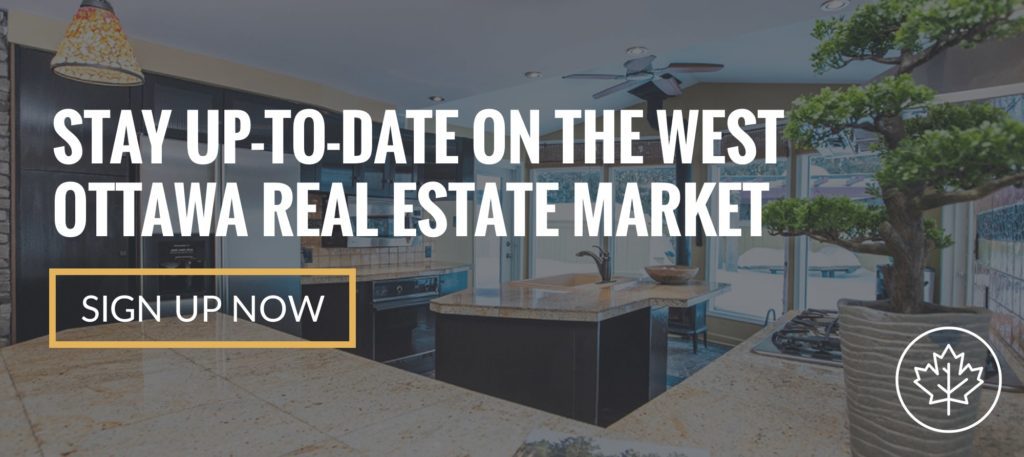A Guide to Buying Your First Home in Ottawa
Buying • May 11, 2023
Has the idea of buying your first home crossed your mind lately? If so, you’re probably experiencing a whirlwind of questions and emotions. You could feel elated, thrilled, and terrified in equal turns and possibly all at the same time. All of this is entirely normal and understandable. It’s all just part of the wonderful world of “adulting,” and nothing is more grown up than buying real estate!
As a first-time buyer, you couldn’t ask for a better city than Ottawa. It’s far more affordable than the GTA and offers one of the best job markets in Canada. Plus, you have plenty of exciting and trendy neighbourhoods to choose from.
But before you can start enjoying the many joys of owning your own home, you must first take the leap. This comprehensive guide will help to answer many of the questions burning in your mind so you can proceed with confidence and enthusiasm.
Understand the Basics of the Real Estate Market
A basic understanding of how the real estate market works will go a long way toward soothing any of those first-time buyer jitters you may be feeling. You don’t need to know the intricate details – that’s what your real estate agent is for! But a little background knowledge never hurts as you move forward. Here are some terms that will help you understand just what you are getting into:
Equity
Simply put, equity is the value of your assets minus your liabilities. Owning a house is a great way to build wealth and grow your net worth. How? Remember that your mortgage is different than rent because a portion of each payment goes back to your net worth as you whittle away at the principal of your loan. Even better, your equity will grow as your house rises in value. In Ottawa, economic stability means housing prices have risen steadily, even during the crisis of 2008. When prices drop, we are less affected due to the strong presence of government jobs.
If you’re ready to begin your house hunt, the articles below are a great place to start:
- What You Need to Know About Buying Out of Province
- Your Guide To Waterfront Properties In Ottawa
- Buying in Ottawa? Here’s How to Find the Deals
Mortgage
Unless you’re lucky enough to have enough cash to buy your first house outright, you’ll probably have to apply for a mortgage. To complicate matters, there are different types of mortgages. For example:
- You might choose a variable mortgage, where your interest rate can fluctuate over the course of your term.
- If that sounds risky to you, you might opt for a fixed rate. Just like it sounds, your rate is fixed and will not change until you renew your financing.
Pre-qualification
How much do you qualify for when applying for a mortgage? A pre-qualification is a quick way to find out. You can go to any bank’s website and get a rough estimate in minutes, with no credit check required. Getting a pre-qualification could be a step in the right direction if you’re in the beginning stages. However, it is only an estimate, not a guarantee. The amount your lender offers could vary depending on your credit history and debt load.
Pre-approval
For more serious buyers, a pre-approval is a fantastic tool. Like a pre-qualification, it gives you an idea of how much you can borrow. The difference is a pre-approval is much more detailed and far more accurate. The lender will perform a credit check and examine your income, assets, debts, and payment history. Once complete, you’ll get a letter of pre-approval from your lender that you can show to sellers to prove you have access to financing. Many homebuyers skip this step, but it can provide an excellent negotiating tool, especially in competitive situations.
Down Payment
Typically, the bank or lender will only finance a maximum of 95% of your purchase. You will need the remainder in cash as a down payment. The amount you need depends on the final price of the home.
If a house is $1 million or more, you need a minimum of 20% upfront, which works out to $200,000. That’s out of reach for many people, especially first-time buyers. How can anyone afford a home?
Fortunately, the rules change once the house you’re considering falls below the $1 million mark. You now need 5% on the first $500,000 plus 10% on any amount between $500,000 and $999,999. For example, if you buy a condo in Ottawa for $500,000, your down payment is $25,000. If you buy a property for $700,000, you need $45,000 ($25,000 + 20,000).
Deposit
The deposit is the part of your down payment that you pay within 24-48 hours of a seller accepting your offer. It usually amounts to 3-5% of the final selling price. Once your transaction closes, your deposit rolls into the remainder of your down payment, and the funds are released to the seller.
Closing Costs
It would be nice if the listing price were what you can actually expect to pay for your home. However, there are a series of closing costs that you must account for. These include lawyer fees, title insurance, HST (if applicable), and land transfer taxes. Some of these costs can be included in your mortgage, but you must pay others up front. Setting aside 3 to 5% for your closing can help you avoid any surprises before taking possession.
Where in Ottawa should you start looking for your first home? The following communities just might be perfect:
- 5 Reasons To Move To Almonte
- Looking for Your Forever Home? Here’s Why Kanata is Perfect!
- Top 5 Reasons We Love the Village of Carp
Government Programs Just for First-Time Buyers
Did you know the government has several programs to make your first purchase more accessible? Here are just a few incentives that might help you reach your goal of homeownership, perhaps even sooner than you thought possible:
First Home Savings Account
The best way to afford your first home is to start saving as young as possible. If you are 18 or older and a permanent resident, it might be time to consider opening an FHSA (First Home Savings Account). This brand-new incentive allows you to save up to $8,000 per year into a tax-free investment account to buy a home. Your lifetime contributions are capped at $40,000.
However, the sooner you start investing, the more investment income you stand to earn. The dividends combined with your savings can go a long way toward making your home affordable.
And unlike the Home Buyer’s Plan, you don’t have to repay anything you withdraw from your FHSA. If there are any funds left over after your purchase, you just close the account and transfer them to your other investments.
Home Buyer’s Plan
The Home Buyer’s Plan allows you to withdraw up to $35,000 from your sheltered investments with no tax penalties. These funds can go toward your down payment, closing costs, and other moving expenses. The caveat is that you will have to repay any amount you withdraw within 15 years of your purchase.
First-Time Home Buyer’s Incentive
Imagine the federal government giving you money towards your first house! That is the idea behind the First Time Home Buyer’s Incentive. The government will assist with your purchase by providing up to 5% of the cost of a resale home or up to 10% for a newly constructed property. Of course, it isn’t exactly “free” money, and the program does have drawbacks.
It isn’t a loan so much as it gives the government a stake in your property. You will have to repay the incentive at some point, either when you sell the home or after 25 years, whichever comes first.
- When you sell, the government becomes entitled to the original incentive plus a maximum of 8% of the gain in value per year.
- However, in the unlikely event the house loses value, you will repay the incentive minus a maximum of 8% of the loss per year.
The drawbacks aside, this program can really help you as a first-time buyer, especially since coming up with the down payment is usually the most challenging part of the purchase.
Land Transfer Rebate
If saving for a down payment is the hardest part of buying a home, paying the land transfer taxes is a close second. They add up to thousands of dollars and are one of the closing costs you cannot include in your mortgage.
Luckily, as a first-time buyer, there is some relief in sight. The provincial Land Transfer Tax Refund is an instant rebate that can save you up to $4,000.
Combining Programs for Maximum Results
Each of these first-time buyer incentives can give you a much-needed boost when buying a home. But you can combine the programs to make your purchase even more accessible. For example:
By taking advantage of the Home Buyer’s Plan and the FHSA together, you can access as much as $75,000 to put toward your purchase. Of course, that only helps if you have that much in savings to begin with.
However, you can also apply for the First Home Buyer’s Incentive, which provides a significant chunk of your down payment. Add the $4,000 you save on your land transfer taxes, and you could be celebrating your first home before you know it!
At West Ottawa Real Estate, few things make us happier than helping people reach the milestone of buying their first home. If you want more information about the process, reach out to us at team@westottawarealestate.ca or give us a call at 613-690-5993.


